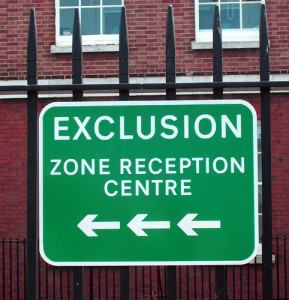Explaining Why Some Student Results Are Excluded From A Key National Test

felinebird / Flickr
More than half of Maryland students with disabilities or learning English didn't count towards the state's NAEP results. Florida excluded 12 percent of those students.
More than half of Maryland students with disabilities or learning English tested don’t count towards the Old Line State’s results on a key national standardized exam, according to The Washington Post.
Maryland excludes the results of 62 percent of learning-disabled and English learners on the fourth grade National Assessment of Educational Progress reading exam. The state excludes 60 percent of those same students on the eighth grade reading exam. Both are the highest rates in the country.
NAEP recommends states not exclude more than 15 percent of student results. The national average is 12 percent. The NAEP reading and math exams are given every two years to a sample of students across the country.
Maryland officials say they allow a person or computer to read text aloud to those students on their annual exams. NAEP does not allow that accommodation, so the scores are not counted.
Florida excluded 12 percent of students with disabilities and those learning English from the 2013 NAEP results. Florida does not allow the “read aloud” accommodation on the Florida Comprehensive Assessment Test.
As the Post report, the change has a significant effect on Maryland’s score — especially compared to other states:
The National Center on Education Statistics, the research arm of the U.S. Department of Education, estimated how every state would have performed on the reading test if it had included those with learning disabilities and English language learners. For most states, the change would have resulted in a point or two difference in average scores on the test, which is graded on a point scale from zero to 500.
If Maryland had included its learning-disabled and English learners, the state’s average score would have dropped approximately eight points — from 232.1 to 224.5 — for fourth-grade reading and about five points — from 273.8 to 269 points — for eighth-grade reading. That estimated change would drop Maryland from having the second-highest state score in fourth-grade reading to 11th place; Maryland would fall from sixth place in eighth-grade reading to 12th place.
Critics say the accommodation turns reading tests into listening tests.
Nationally, exclusion rates have been declining over the past decade. The tables below shows exclusion rates by state and by test (hat tip to Dropout Nation for the data):